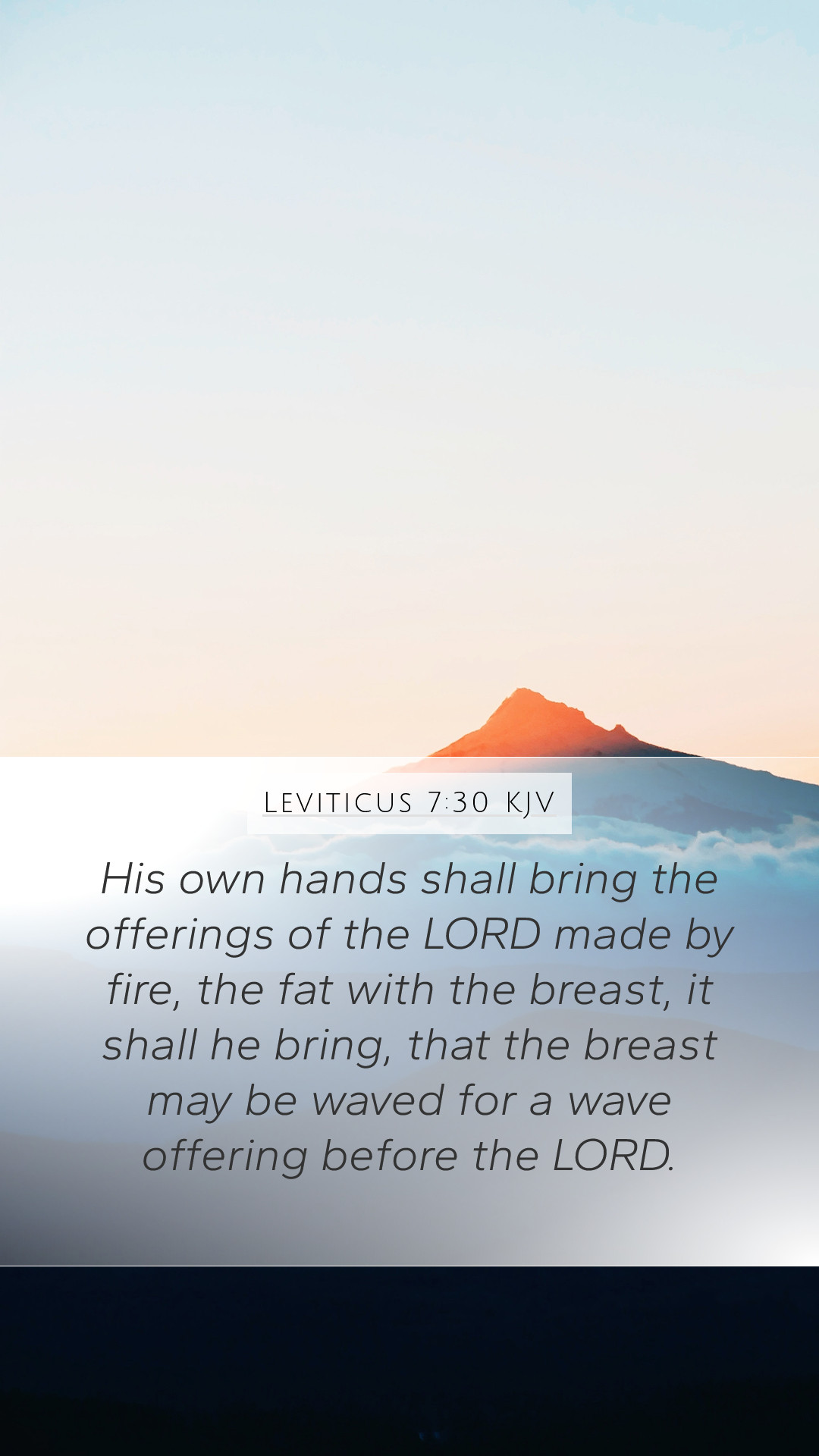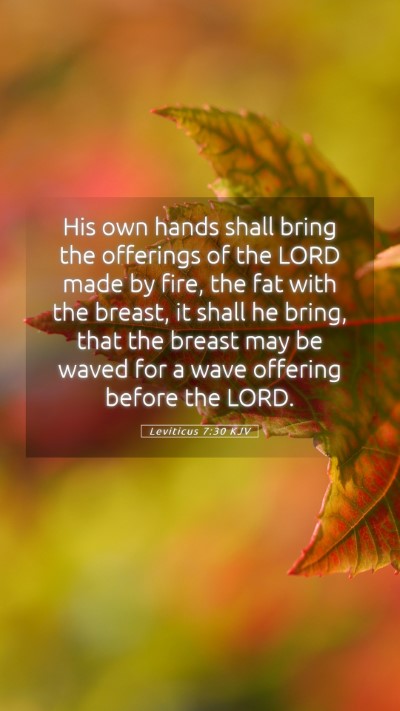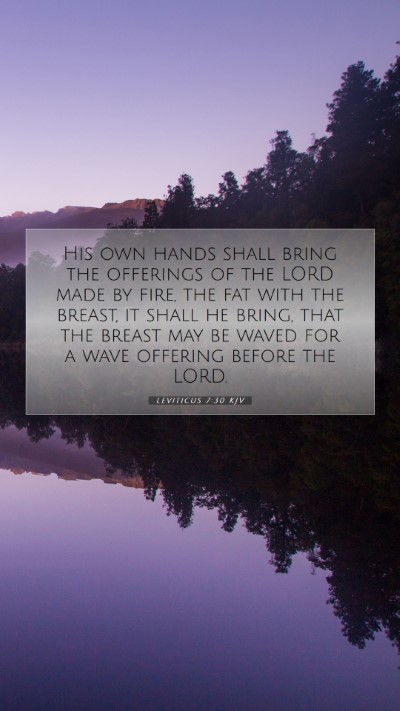Understanding Leviticus 7:30
Leviticus 7:30 states: "His own hands shall bring the offerings of the LORD made by fire; the fat with the breast shall he bring, that the breast may be waved for a wave offering before the LORD."
This verse focuses on the ritual of offering in the Old Testament, highlighting the significant role of the individual making the offering and the symbolic actions involved. It emphasizes the requirement that the offeror brings the offerings personally, underscoring a sense of ownership and personal devotion in presenting sacrifices before God.
Commentary Insights
- Matthew Henry's Commentary: Henry explains that the act of bringing the offerings 'by the hands' of the offeror signifies a personal commitment to God. He elaborates on the symbolic nature of waved offerings, representing the offeror's dedication and acknowledgment of God’s provision.
- Albert Barnes' Notes: Barnes highlights the ceremonial aspect of wave offerings, indicating that they served as a visible declaration of gratitude towards God. He connects this verse to the broader context of Levitical law, demonstrating God’s intention for His people to engage actively in worship and thanksgiving.
- Adam Clarke's Commentary: Clarke points out the importance of fat in sacrificial offerings, considering it a choice part dedicated to God, symbolizing the best of what believers have. He also emphasizes the communal aspect of sacrifices, seeing them as a means to maintain a relationship with God and the community.
Importance of Personal Involvement
The practice described in Leviticus 7:30 illustrates a foundational principle of biblical sacrifice: involvement and atonement are personal responsibilities. The act of offering requires not just any offering but one that represents a deep, personal act of faith and devotion.
Spiritual Significance
Moreover, the mention of "the fat with the breast" points to the concept of dedicating the best to God, a recurring theme throughout the Scriptures. By bringing the best portions of livestock, the worshippers are expressing their acknowledgment of God's sovereignty and provision in their lives. This spiritual principle continues to resonate in Christian practices today, urging believers to offer their best, be it time, resources, or talents, in service to God and His people.
Parallel Scriptures
- Exodus 29:24-26: Discusses the wave offering performed during ordination and consecration rituals, paralleling the concepts found in Leviticus 7:30.
- Numbers 18:12: Explains the offerings given to priests, reinforcing the idea of special portions dedicated to God’s service.
- Hebrews 13:15: Connects to the New Testament by encouraging believers to offer sacrifices of praise, reflecting the continuity of dedicating ourselves to God.
Application in Daily Life
In a contemporary context, Leviticus 7:30 teaches important values such as intentionality in our spirituality. Individuals seeking to deepen their Bible verse understanding should consider how they present their best to God daily. This may involve charitable acts, service to the church, or striving for spiritual growth and maturity, akin to the physical act of offering in the Old Testament.
Conclusion
Through the lens of Biblical exegesis of Leviticus 7:30, we gain valuable insights into the nature of sacrificial worship, the significance of personal involvement in our relationship with God, and the spiritual duties encapsulated in our offerings. This verse serves not only as a guideline for ancient worship but remains relevant in guiding how modern-day believers engage with their faith.


